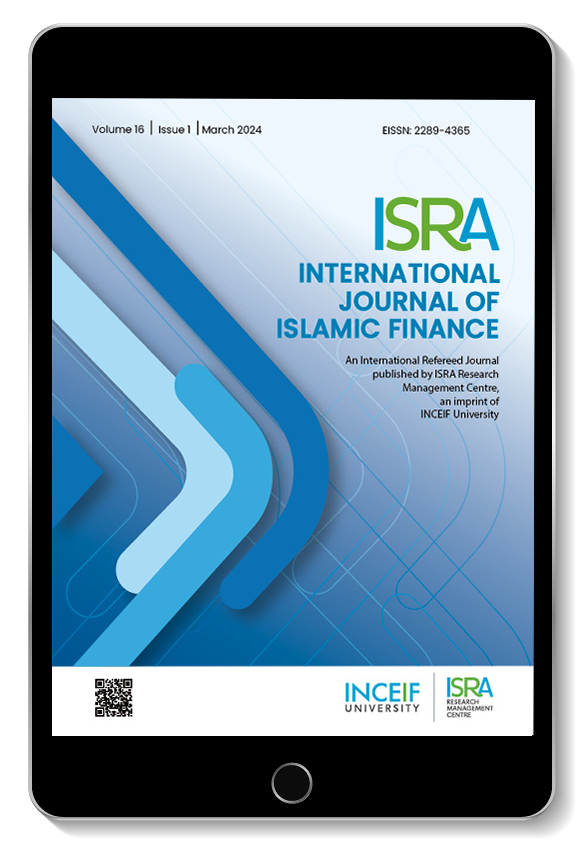Who is Homo Islamicus? A Qurʾānic perspective on the economic agent in Islamic economics
IF 2.8
Q2 BUSINESS, FINANCE
引用次数: 2
Abstract
PurposeThis paper aims to explain the nature of the economic agent in Islamic economics. He is commonly referred to as Homo Islamicus.Design/methodology/approachThis is done by deriving the concept from the Qurʾān as the primary epistemological source in Islamic economics. The paper, thus, attempts to explore the message of the Qurʾān and internalize its concepts and values in their totality into the conception of the economic agent from an Islamic perspective.FindingsThe paper brings an insight regarding the nature of the economic agent in Islamic perspective. The concept of the economic agent that is developed from the Qurʾānic teachings will be useful in developing assumptions and theories in Islamic economics.Research limitations/implicationsThis paper explores the normative behavioral framework of man from the Qurʾānic perspective (i.e. what is expected of man) in order to serve as the basis on which assumptions, concepts and theories could be produced and applied in real life. Further studies could extend the discussion by examining the application of the concepts in practice.Practical implicationsThis paper promotes a normative behavioral framework that could be the basis in developing the body of knowledge of Islamic economics.Originality/valueThis paper promotes a concept of the economic agent in Islamic perspective, termed as Homo Islamicus, who is going to portray Islamic ethical teachings in economic actions. The paper brought insights from the Qurʾānic teachings and principles in developing the concept of Homo Islamicus who will be the representative agent in theorizing Islamic economics.谁是伊斯兰人?《古兰经》对伊斯兰经济学中经济主体的透视
目的本文旨在解释伊斯兰经济学中经济主体的性质。他通常被称为伊斯兰人。设计/方法/方法这是通过从作为伊斯兰经济学主要认识论来源的《古兰经》中获得概念来实现的。因此,本文试图从伊斯兰的角度探索《古兰经》的信息,并将其概念和价值观整体内化为经济代理人的概念。本文从伊斯兰的角度对经济代理人的性质进行了深入的探讨。从《古兰经》教义发展而来的经济主体概念将有助于发展伊斯兰经济学的假设和理论。研究局限性/含义本文从《古兰经》的角度探讨了人的规范行为框架(即对人的期望),以作为产生假设、概念和理论并在现实生活中应用的基础。进一步的研究可以通过审查这些概念在实践中的应用来扩大讨论范围。实践含义本文提出了一个规范的行为框架,该框架可能是发展伊斯兰经济学知识体系的基础。独创性/价值本文从伊斯兰的角度提出了一个经济代理人的概念,称为伊斯兰人,他将在经济行动中描绘伊斯兰的伦理教义。本文从《古兰经》的教义和原则中汲取了对伊斯兰人概念发展的见解,伊斯兰人将成为伊斯兰经济学理论化的代表人物。
本文章由计算机程序翻译,如有差异,请以英文原文为准。
求助全文
约1分钟内获得全文
求助全文
来源期刊

ISRA International Journal of Islamic Finance
BUSINESS, FINANCE-
CiteScore
3.40
自引率
17.40%
发文量
18
审稿时长
20 weeks
期刊介绍:
It is the aspiration of the editorial committee that IJIF achieves the highest rank in quality and substance. It is thus our aim that the journal be carried in the Thompson Reuters’ ISI and Scopus databases. By ensuring high standards in articles published in Islamic finance we ensure that further innovation and research is carried out and promoted in the Islamic finance industry and academia. IJIF publishes 2 issues per annum.
 求助内容:
求助内容: 应助结果提醒方式:
应助结果提醒方式:


